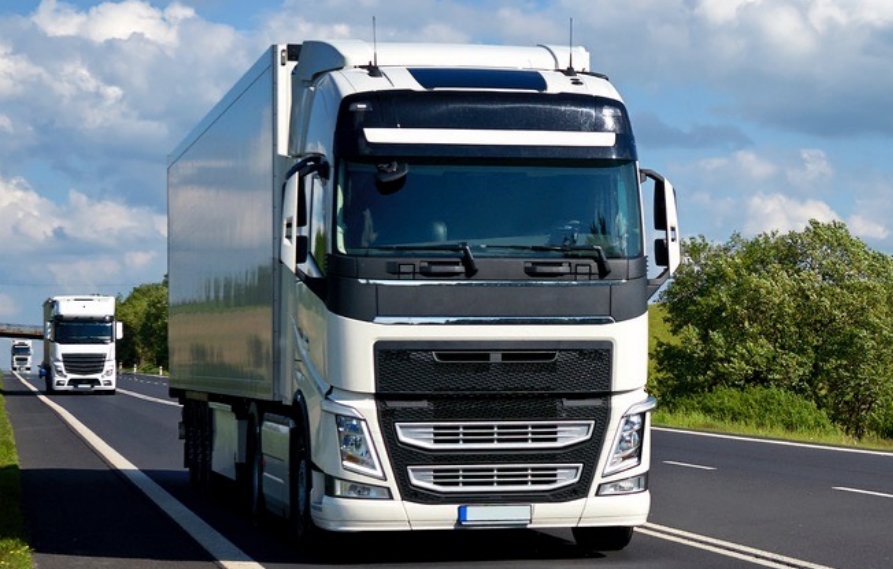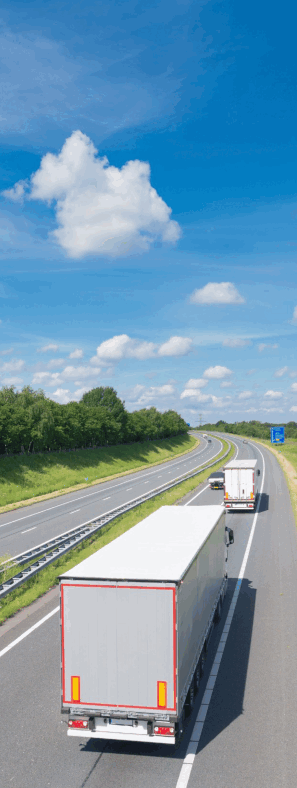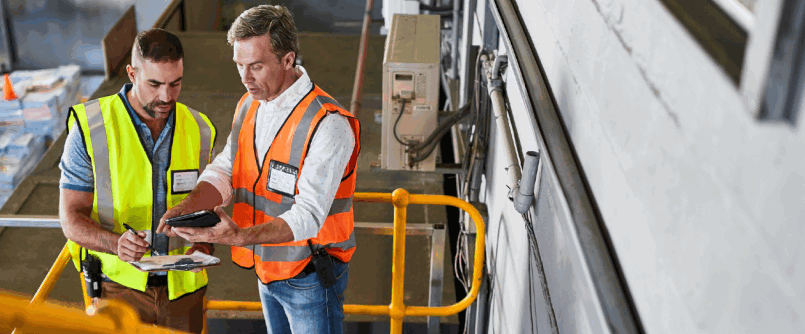
The CompleteELD Mandate Survival Guide


What is the Mandate?
This rule requires drivers to keep an electronic log of the time they spend driving, alsoknown as their “hours of service” (HOS).
What are ELDs?
Electronic Logging Devices enable commercial motor operations and professional drivers to track and keep a verifiable record of their HOS.
Who is Affected?
As a Federal Motor Carrier Safety Rule, the ELD mandate applies to commercial motor vehicle operations and drivers required to keep paper records of duty status (RODS).

What is the ELD Mandate?
The Electronic Logging Device (ELD) rule was published by the Federal Motor Carrier Safety Administration (FMCSA) on December 16, 2015.
This rule requires drivers to keep an electronic log of the time they spend driving, also known as their “hours of service” (HOS).
The ELD rule went into effect on February 16, 2016, but compliance did not become mandatory until December 18, 2017. Now, fleets and drivers are expected to be transitioning to ELDs.
Implementation Timeline


The FMCSA has outlined a three-phase plan for ELD implementation:
Phase One: Awareness and Transition (Feb. 2016 – Dec. 18, 2017)During this first phase, drivers may still use paper logs, logging software, and Automatic OnBoard Recording Devices (AOBRDs) to record their HOS. Fleet owners and managers should use this opportunity to research ELD providers and introduce the use of ELDs to their fleets.
Phase Two: Phased-In Compliance (Dec. 18, 2017 – Dec. 16, 2019)This two-year phase will involve the phasing out of most non-ELD forms of logging. The exception to this will be AOBRDs that were installed before the start of Phase Two. Under the ELD rule’s grandfather clause, users of these AOBRDs will be given an extra two years to become compliant. (See OBRD Grandfathering)
Phase Three: Full Compliance (Dec. 16, 2019)As of December 16, 2019, the use of registered ELDs will be mandatory and enforced for all carriers subject to the ELD rule.

What are ELDs?
Electronic Logging Devices enable commercial motor operations and professional drivers to track and keep a verifiable record of their HOS (hours of service).
Benefits of ELDs
For FleetsThe use of ELDs can offer fleets a myriad of benefits by reducing the inevitable errors involved in manual logging and providing the means to easily store and retrieve important records.
- Reduce hassle and potential for human error associated with paper logs
- Simplify paperwork and improve accuracy of HOS record-keeping
For DriversELDs help drivers handle inspections by generating accurate, compliant reports.
- Reduce potential violations and fines by simplifying compliance
- Simplify and streamline the auditing process
The Next StepIf you haven’t already made the switch to ELDs, now is the time to do so. Fortunately, the transition process—while it can be time-consuming—can be made painless with the right provider and ELD system.


Who Does the ELD Mandate Affect?
As a Federal Motor Carrier Safety Rule, the ELD mandate applies to commercial motor vehicle operations and drivers required to keep paper records of duty status (RODS).
Am I Exempt?There are only a few exceptions to mandatory ELD implementation. The following drivers may qualify for an exemption:
100 Air-Mile Radius Drivers: Drivers using the 395.1(e) logbook timecard exceptions (shorthaul drivers)
Drive-Away/Tow-Away Drivers: Drivers transporting a vehicle for an operation (repair, sale, etc.) wherein the vehicle itself is the product being shipped.
Pre-2000 Model Drivers: Drivers operating vehicles manufactured prior to model year 2000.
Limited Log Usage Drivers: Drivers whose paper log usage does not exceed 8 days in a 30-day period.
AOBRD GrandfatheringThe FMCSA has included a Grandfather Clause with the ELD rule that allows otherwise subject parties using compliant AOBRD devices an extra two years to adopt compliant ELDs.


What to Look For In An ELD
To be compliant, an ELD solution must support the following:
- One of two options for electronic data transfer:
- Telematics Transfer: The ELD must be able to electronically transfer data to an authorized safety official on demand via wireless Web services and email.
- Local Transfer: The ELD must be able to electronically transfer data to an authorized safety official on-demand via USB2.0 and Bluetooth®.
- Automatic recording of the following at certain intervals: Date, Time, Location Information, Engine Hours, Vehicle Miles, and Identification for the Driver, Authenticated User, Vehicle, and Motor Carrier.
- Automated entry at each change of duty status, at 60-minute intervals, while CMV is in motion, at engine-on and engine-off events, and at the beginning and end of personal use and yard moves.
- Display or printed presentation of a graph grid of driver’s daily duty status changes.
- Annotations and edits on ELD records (Original records cannot be revised, must be kept in addition to edited versions).
- Monitoring engine connectivity, timing, positioning, etc., for data inconsistencies and detectable malfunctions.
Finding an ELD Provider
A competent ELD provider can help you find and implement everything you need to get compliant with the ELD mandate. Use this checklist to assess prospective providers and ensure you’re getting the best fit for your fleet.
ELD ExpertiseDoes the provider have experience with ELD implementation in fleets of similar size and scope to yours? Are they familiar with FMCSA guidelines?
![]()
![]()
![]()
![]()
![]()
![]()
![]()
Industry ExperienceDoes the provider have experience with ELD implementation in fleets of similar size and scope to yours? Are they familiar with FMCSA guidelines?
![]()
![]()
![]()
![]()
![]()
![]()
![]()
ComplianceAre the ELDs supported by the provider compliant with all FMCSA rules?
![]()
![]()
![]()
![]()
![]()
![]()
![]()
Self-CertificationELD manufacturers self-certify their ELDs after determining their FMCSA compliance. Does the provider offer a Registered ELD? You can see the list of Registered ELDs here.
![]()
![]()
![]()
![]()
![]()
![]()
![]()
Do They Provide Training?The transition to Electronic Logs can be difficult for many drivers and fleets. Does the provider make this transition easier by providing training?
![]()
![]()
![]()
![]()
![]()
![]()
![]()
Are They Upfront About Cost?Some providers try to charge hidden fees for ELD implementation. Is the provider upfront about hardware costs, installation fees, monthly fees, and support costs?
![]()
![]()
![]()
![]()
![]()
![]()
![]()



Copyright © 2019 GPS TrackitAll Rights Reserved
Feel free to email, tweet, blog and share this Survival Guidewith your colleagues and business associates.
Call us at 866.320.5810 or check out our ELD Fleet web pagefor help getting your fleet compliant with FMCSA regulations.
The Complete ELD Mandate Survival Instruction Manual – The Complete ELD Mandate Survival Instruction Manual –

